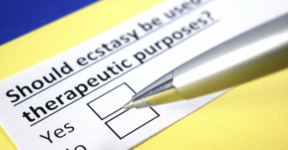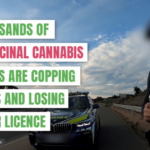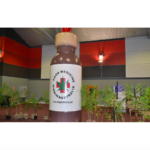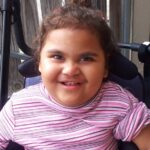Ecstacy and Magic Mushrooms to be Approved for Treatment

In a major win for those suffering from chronic depression and post-traumatic stress disorder, the Therapeutic Goods Administration (TGA) has added Psilocybin – or magic mushrooms – and 3,4-Methylenedioxymethamphetamine (MDMA, or ‘ecstacy) to Schedule 8 (Controlled Substance) of the Poisons Standard; which means they can be prescribed by specifically authorised psychiatrists for certain medical conditions.
The substances will remain on Schedule 9 (Poisons Standard, Prohibited) and their supply will remain prohibited for all other purposes.
The change
From 1 July 2023, ‘authorised prescribers’ will be able to issue prescriptions for the substances to patients as part of therapy for treatment-resistant depression – for which psilocybin can be prescribed – and post-traumatic stress disorder – for which MDMA can be prescribed.
Vital treatments for depression and PTSD
Treatment-resistant depression and PTSD is more common than many might think.
According to statistics, up to one-third of adults with major depression battle long term symptoms — such as persistent feelings of sadness, sleep disturbances, low energy and thoughts of death or suicide — that don’t respond to other treatments.
The TGA’s decision is the result of a long campaign by Mind Medicine Australia’s (MMA) and it makes Australia the first nation in the world to reschedule these medicines for medical purposes, making this country an innovative leader in the treatment of mental illness, particularly what’s being called ‘psychedelic-assisted psychotherapy’.
Trials and research over a period of years have shown that both MDMA and Psilocybin have great potential for treating a range of mental-health disorders including PTSD, and untreatable depression, as well as alcohol-use disorder and anorexia nervosa.
For many Australians, the timing couldn’t be more vital.
The latest statistics for the Australian Institute of Health and Welfare show that:
- Forty-four percent of Australians aged 16–85 are estimated to have experienced a mental disorder at some time in their life, with 21 percent having experienced a mental disorder in the previous 12 months.
- Depression and anxiety are also on the rise in our youth – about 14 percent of young people aged 4–17 years are estimated to have experienced a mental illness in the previous 12 months.
The education system is so concerned about the mental health crisis facing young people, it is actively looking for ways it can assist mental health and wellbeing in the school setting, because early intervention is key to getting an appropriate diagnosis and treatment. While it’s not a teacher’s role to diagnose a mental illness, teachers can play a vital role in identifying early warning signs that could be cause for concern.
Saving lives
While many experts have blamed the Covid-19 pandemic for the rise in mental health issues, and certainly the figures back that up, life’s stresses and strains are increasing across the board for everyone affecting people’s ‘happiness’ and ‘hope’ for the future.
In Australia, about 12 percent of Australians experience PTSD in their lifetime and around 6 percent experience it in any 12 month period. Studies also show that the odds of experiencing PTSD are seven times higher for victims of domestic violence.
In 2021, 3144 people committed suicide in Australia – an average of 9 per day. Men commit suicide at higher rates than women.
Access will be strictly controlled
Details about how the medicines will be used and distributed under the new classification is not yet entirely clear. Psychiatrists who are ‘authorized prescribers’ will be able to prescribe these medicines for patients who have not responded to other treatments.
The drugs will then be made available to patients via licensed pharmacies which hold Schedule 8 permits. The supply will be tightly controlled under Australian and State/Territory regulatory requirements.
Psychiatrists prescribing these drugs will also be required to report evidence of patients’ experiences during and post-treatment which will then be independently analysed so that important data can be collected and published – a TGA requirement.
However, the data will also add to the growing body of knowledge already provided by the randomised control trials being done by other organisations around the world.
The TGA re-classification of MDMA and Psilocybin as ‘controlled medicine’ does not affect the drugs prohibited status for any use outside of the treatment of PTSD or treatment-resistant depression.
Possession and supply of both are still criminal offences outside of this very specific purpose. The penalties for possession and supply of MDMA and Psilocybin can be severe.







